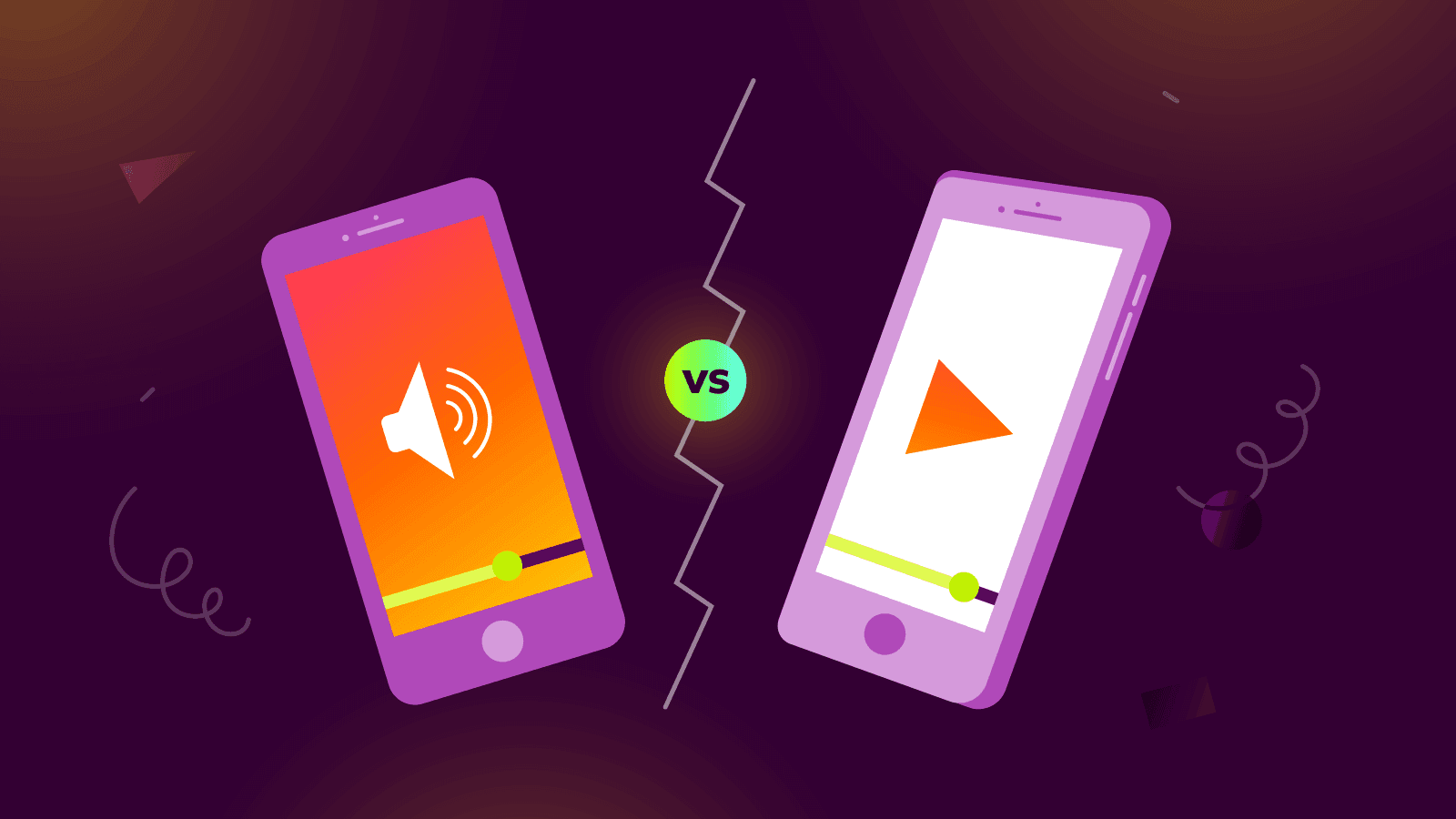Creatopy is now The Brief. Read the full note from our CEO, Tammy Nam.
Creatopy is now The Brief. Read the full note from our CEO, Tammy Nam.

Everyone's talking about audio advertising, and we're all ears.
So when Google announced the launch of YouTube audio ads (it’s still in BETA, so you need to reach out to your Google sales representative if you don’t have access to it), we knew what we had to do: test it.
Our goal was to see how the latest ad type compares to the one we have used before (YouTube video ads). Because we didn’t find any case studies on this topic, we wanted to be the first ones to run this experiment.
It’s pretty simple.
With YouTube video ads, you can promote a video material, while YouTube audio ads give advertisers the option to reach their target audience through audio. You should still use images or animations, but the main focus is on the voiceover, so the audio quality should be a top priority. Using an ad maker for youtube can simplify this process, letting you combine visuals and sound efficiently for either format.
Another difference between audio ads and video ads is that audio ads mostly show on music or podcast content, while video ads can appear on various channels. However, we'll see later that the audio ads appeared on other types of channels as well.
From April 13, 2021, until May 16, 2021, we ran a YouTube audio and a YouTube video ad campaign. We allocated the same budget for each campaign, using the same settings and audiences.
The message for the two ads was the same, as well as the length. The only thing that was different was the design asset. This was a great opportunity for us because the main goal for these types of campaigns is brand awareness.
Since we launched the rebranding in February 2021, we wanted to continue raising awareness about The Brief and our new positioning.
What we learned from this experiment:
Experimenting is a must for every advertiser, as it can help you notice certain patterns and sequences that perhaps you wouldn’t recognize otherwise.
There is no right or wrong in digital marketing, so let us know whether you have any questions. Or if you made similar experiments feel free to share your results and opinions with us.
Let's put these insights into action. Build, scale, and automate campaigns with AI-powered workflows.